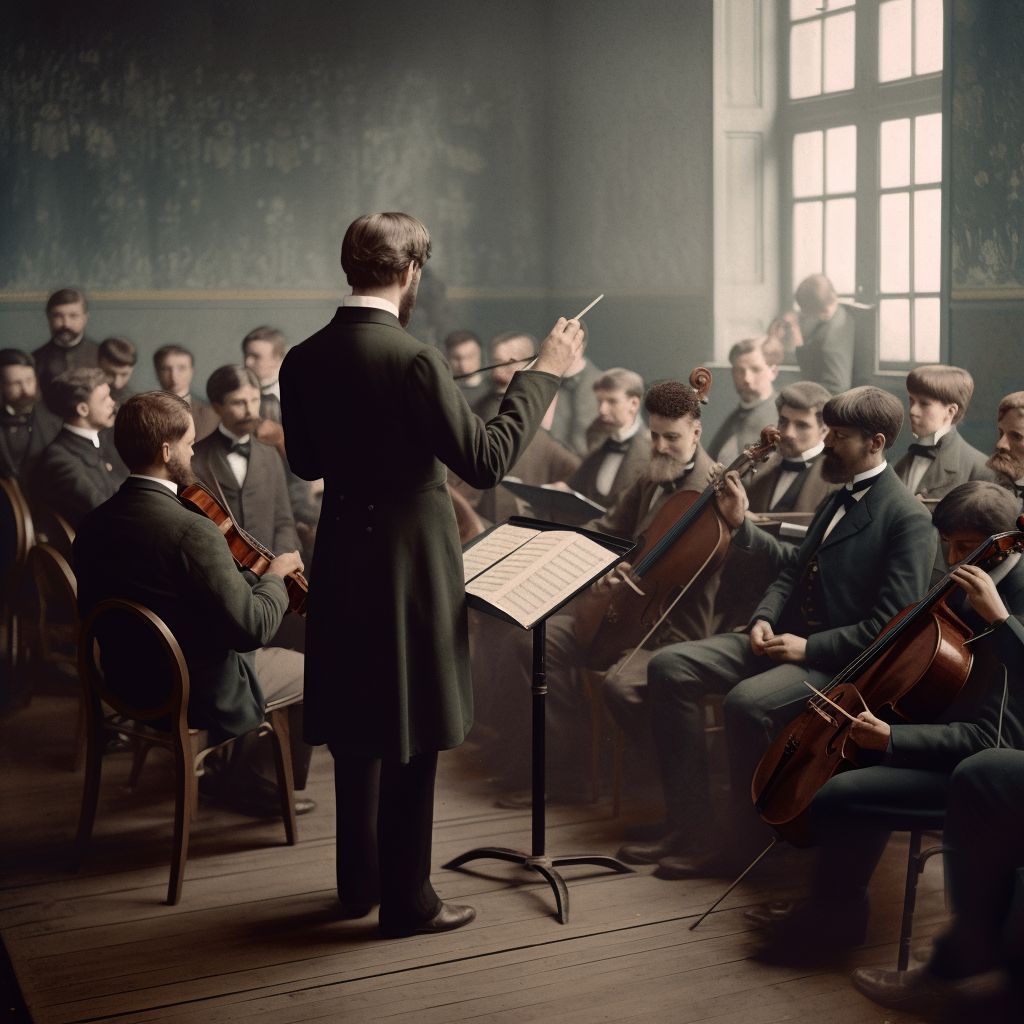Conductor
The role of an orchestra conductor has long been an essential component of the musical world, providing artistic direction and leadership for orchestral performances. In 1880, the conductor profession was highly regarded and played a significant part in the flourishing musical scene of the time. This article aims to provide a comprehensive overview of the orchestra conductor profession in 1880, including the responsibilities, challenges, and opportunities within the field.
The Role of an Orchestra Conductor
An orchestra conductor serves as the artistic leader of a group of musicians, guiding them through the intricacies and nuances of a musical composition. They are responsible for interpreting the composer's intentions and ensuring that the musicians perform cohesively and with the desired emotional impact. Conductors achieve this through the use of gestures, body language, and facial expressions, which convey the tempo, dynamics, and phrasing of the music to the orchestra.
Training and Education
Becoming an orchestra conductor typically required extensive musical education and training in the 19th century. Aspiring conductors often began their studies at a young age, learning to play one or more musical instruments and gaining a deep understanding of music theory, history, and composition. Many conductors also pursued formal education at prestigious music conservatories, where they would study conducting techniques, repertoire, and score analysis under the guidance of experienced mentors.
Challenges and Opportunities
The conductor profession in 1880 presented both unique challenges and opportunities. One of the primary challenges faced by conductors of the time was the lack of standardized conducting techniques and practices, making it difficult to establish a consistent approach to leading an orchestra. Additionally, conductors were often required to adapt to the varying abilities and temperaments of the musicians they worked with, requiring strong communication and interpersonal skills.
Despite these challenges, the conductor profession in 1880 provided ample opportunities for artistic growth and professional advancement. As musical tastes evolved and orchestral music gained popularity, conductors were in high demand to lead orchestras in the performance of new and exciting works. Furthermore, the conductor's role allowed for creative exploration and the potential to leave a lasting impact on the musical landscape of the time.
Conclusion
In 1880, the orchestra conductor profession was an integral part of the musical world, shaping the direction and interpretation of orchestral performances. Despite the challenges faced by conductors, their role was essential in driving the artistic vision and ensuring the success of orchestral music in the 19th century. As a result, the conductor profession remains an enduring and vital aspect of the rich tapestry of musical history.
Type
Entertainment

